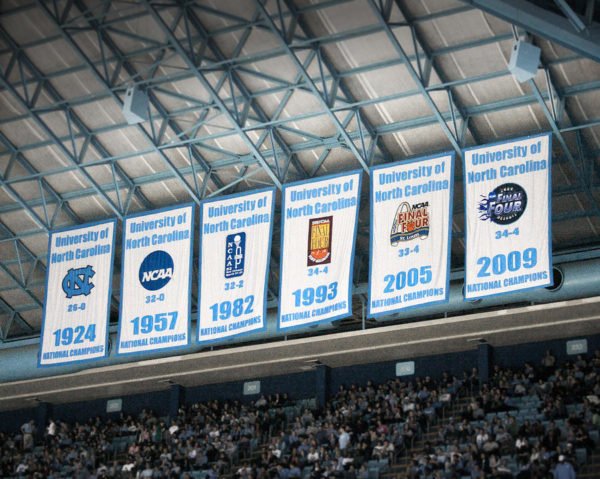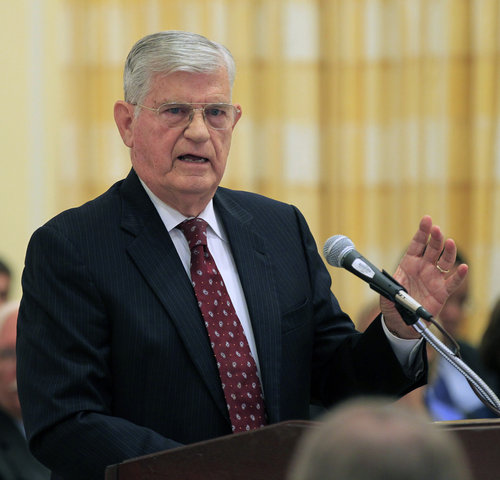ACC Offseason Storylines: UNC Escapes Punishment in Academic Scandal
Posted by Brad Jenkins on October 18th, 2017We are now a little over three weeks away from opening night in college basketball, so it’s time to start our preseason coverage here at the ACC microsite. Over the next several weeks we will preview the fortunes of all 15 ACC schools by projecting how each squad will maximize its strengths and mitigate its weaknesses, and we will also be reporting from ACC Operation Basketball in Charlotte later this month. But first, let’s catch up on a few of the most important storylines in the ACC since North Carolina captured its sixth NCAA Championship in Glendale last April. Here’s Part Two of our three-part series (Part One is here).
NCAA Taps Out in Case vs. North Carolina

After years of speculation, it appears that all these Championship Banners (+1) will remain aloft in the Dean Smith Center. (OrangeCatArt)
After years of delays from myriad stall tactics, lawyer threats and public posturing, North Carolina received the NCAA’s final report last Friday concerning the school’s decades-long academic scandal. At the heart of the case was the NCAA’s original contention that athletes received special access to bogus classes, an impermissible benefit. The university countered with the argument that the NCAA was in violation of its own bylaws by delving into the academic side of things. In the end, despite clear evidence that North Carolina athletes received disproportionate benefit in staying eligible through the ‘paper class’ coursework, the NCAA took the safest route and backed off, stating:
“The panel noted that its ability to determine whether academic fraud occurred at UNC was limited by the NCAA principle relying on individual member schools to determine whether academic fraud occurred on their own campuses. North Carolina said the work was assigned.”












































